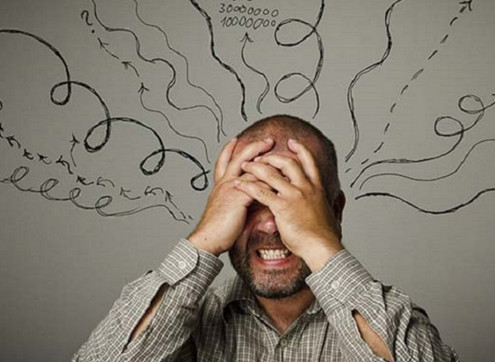What is unconscious anxiety? + Video
Subconscious anxiety is a type of anxiety that is rooted in unconscious thoughts and beliefs. Unlike conscious anxiety, which is often tied to a specific event or situation, subconscious anxiety is a more pervasive and persistent type of anxiety that can affect a person’s daily life and well-being. In this essay, we will explore the causes of subconscious anxiety, its symptoms and effects, and the various treatment options available.
The Symptoms of General Anxiety and Panic Disorder :
Subconscious anxiety is believed to be caused by unconscious thoughts and beliefs that are stored in the mind, often as a result of past experiences or traumatic events. These unconscious thoughts and beliefs can be triggered by certain situations, causing feelings of anxiety and fear. For example, someone who has experienced a traumatic event in the past may experience feelings of anxiety and fear in situations that remind them of that event, even if they are not consciously aware of why they are feeling that way.

The symptoms of subconscious anxiety can be similar to those of conscious anxiety, and they may include feelings of worry, fear, and panic. Physical symptoms of subconscious anxiety can include sweating, shaking, and a racing heartbeat. anxiety can also lead to changes in sleep patterns, as well as feelings of fatigue and exhaustion. Additionally, anxiety can cause a range of emotional and psychological symptoms, such as depression, low self-esteem, and feelings of hopelessness.
Subconscious anxiety can have a major impact on a person’s life, affecting not only their mental and physical health, but also their relationships and overall quality of life. For example, subconscious anxiety can make it difficult for people to maintain healthy relationships, as they may experience feelings of irritability and mood swings. Additionally, anxiety can impact a person’s ability to perform well at work or school, as it can interfere with their concentration, motivation, and overall well-being.
There are several treatment options available for people who experience subconscious anxiety. The most effective approach will depend on the underlying cause of the anxiety, as well as the severity and frequency of symptoms. Some of the most common treatments for anxiety include:
- Medications: Antidepressants, such as selective serotonin reuptake inhibitors (SSRIs), can be effective in reducing symptoms of subconscious anxiety. Other medications, such as benzodiazepines, may also be used to manage symptoms, but they should be used with caution, as they can be habit-forming and have other side effects.
- Psychotherapy: Psychotherapy, such as cognitive-behavioral therapy (CBT), can help people understand and manage their anxiety symptoms. CBT can help individuals identify and change negative thought patterns, as well as develop effective coping strategies for managing anxiety.
- Hypnotherapy: Hypnotherapy is a form of therapy that uses hypnosis to help individuals access and change unconscious thoughts and beliefs that are causing their anxiety. By accessing the subconscious mind, hypnotherapy can help individuals understand and overcome the root cause of their anxiety.
- Mindfulness techniques: Mindfulness techniques, such as meditation and yoga, can help individuals become more aware of their thoughts and feelings, and reduce symptoms of anxiety. Mindfulness can help individuals develop a greater sense of self-awareness and reduce feelings of worry and fear.
- Support groups: Joining a support group can provide individuals with a sense of community and help them feel less alone in their struggle with anxiety. Support groups can also provide a forum for people to share their experiences, offer advice, and provide encouragement.
In conclusion, subconscious anxiety is a type of anxiety that is rooted in unconscious thoughts and beliefs, and it can have a major impact on a person’s life. However, with the right treatment and support, individuals can manage their anxiety and lead a healthy and fulfilling life. It is important for individuals who are experiencing symptoms of anxiety to seek help from a mental health professional, who can help determine the best course of action and provide the necessary resources for managing their anxiety.
Treatment options for subconscious anxiety can vary from person to person and may include medications, psychotherapy, hypnotherapy, mindfulness techniques, and support groups. By working with a mental health professional, individuals can develop a personalized treatment plan that takes into account their unique needs and goals.
It is also important for individuals with subconscious anxiety to prioritize self-care and make lifestyle changes that can support their mental and physical well-being. This may include getting enough sleep, eating a healthy diet, exercising regularly, and engaging in activities that bring joy and relaxation. By taking these steps, individuals can build resilience and reduce their risk of experiencing symptoms of anxiety.
In conclusion, subconscious anxiety is a complex and challenging condition, but it is treatable. With the right support and treatment, individuals can overcome their anxiety and live fulfilling lives. If you or someone you know is experiencing symptoms of anxiety, it is important to seek help from a mental health professional as soon as possible.


